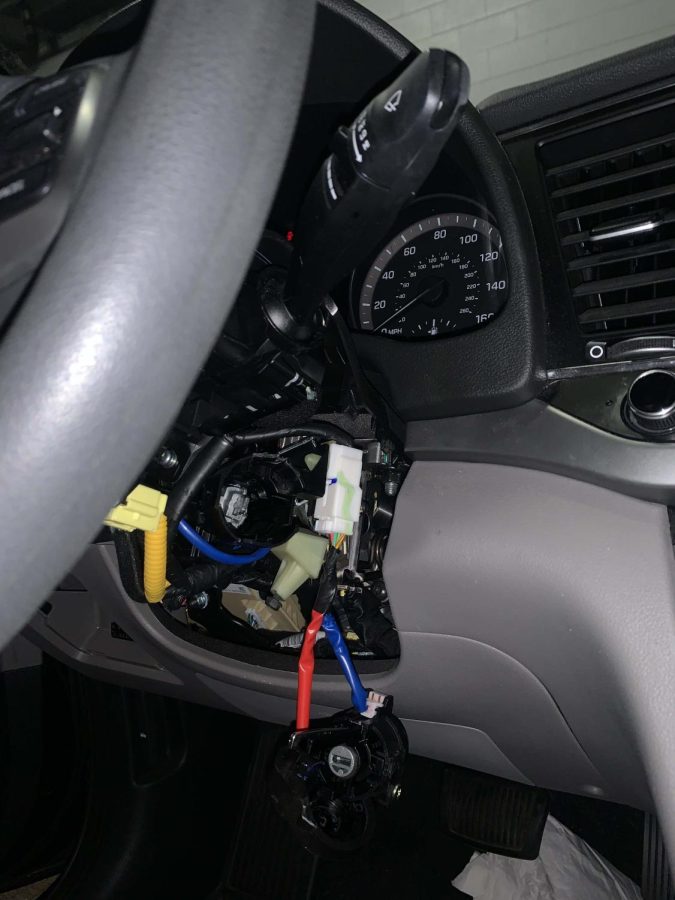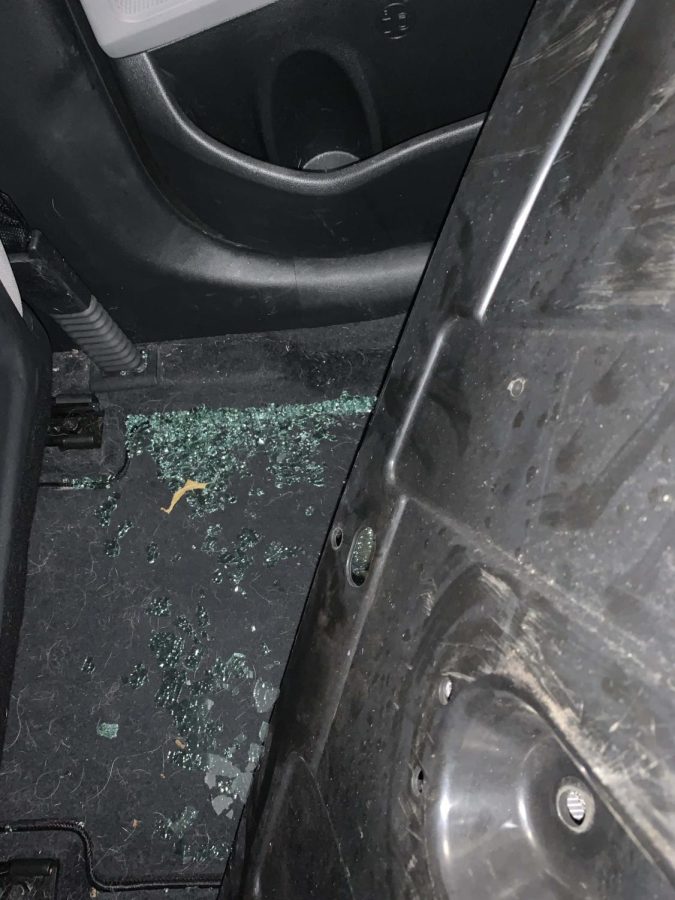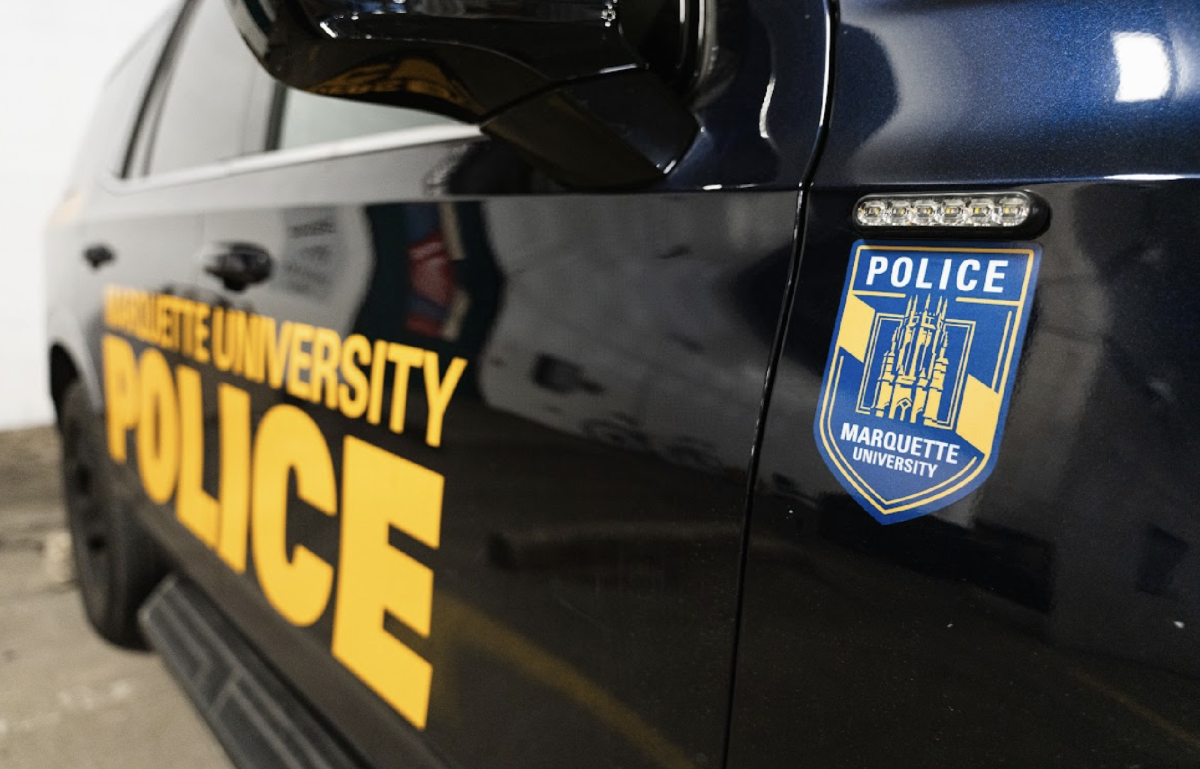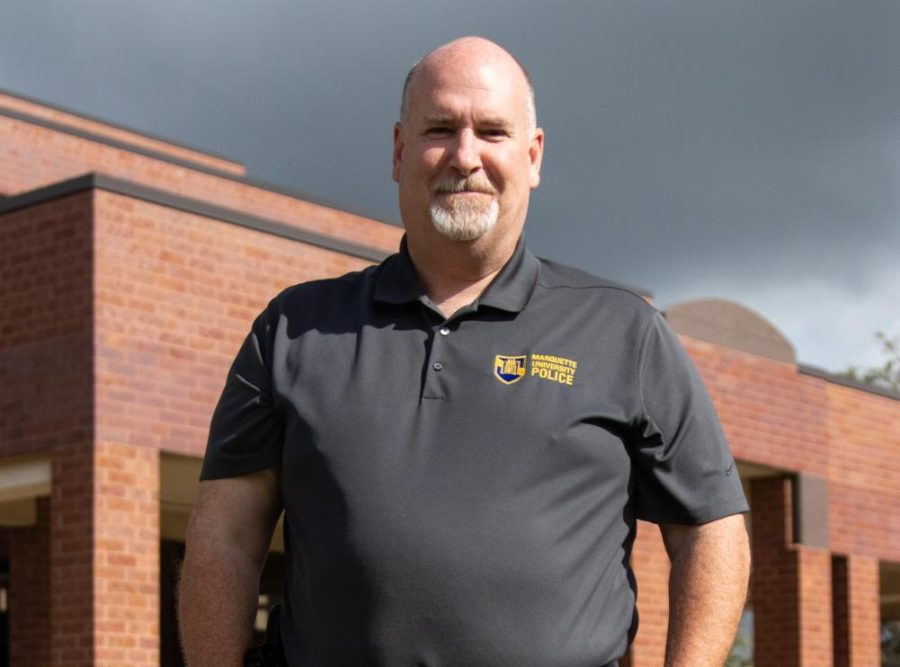Ally Pavlich, a first-year in the College of Health Sciences, had planned on having a normal Monday night. After driving back from McDonald’s, she parked her 2017 Hyundai Elantra on the 900 block of 19th Street. After showering about 30 minutes later she went back outside with plans to drive to Straz Hall to visit a friend. That’s when she realized her car was nowhere to be found.
“I just remember thinking to myself ‘I swear I parked my car here,'” Pavlich said.
Pavlich thought she might have been seeing things. After all, it been nearly half a semester since she had started college. Midterms, homework and making sure she was eating enough were consuming most of her mind these days.
“Maybe I parked somewhere else,” she said she thought.
After walking up and down 19th Street and even up to Kilbourn, reality started settling in: Pavlich’s car had been stolen.
Pavlich then called Marquette University Police Department and reported the car stolen.
“Their first question they asked me was ‘Kia or Hyundai?’ and I was a bit confused at that question,” Pavlich said.
She did not know it yet, but Pavlich had been a victim of the “Kia Boys,” a Milwaukee-based group of young men typically aged 12-16 who have gained national media attention for breaking into Kias and Hyundais.
Kias and Hyundais are the most commonly stolen cars due to an issue with the system that operates the key slot as reported by the Wall Street Journal
The article also mentions that these cars are easier to steal because they take traditional keys and do not have a traditional “chip” that many new models of cars have.
Last month, Kia and Hyundai faced hundreds of class action lawsuits from current owners and victims who became upset with the companies after it was exposed on TikTok that you could start a Kia or a Hyundai with a USB cord.
These cars are susceptible to being stolen because the vehicles made between the years of 2015-2021 did not have engine immobilizers, an electronic security device that prevents the car from starting unless the exact key is inserted into the ignition.
Angry customers criticized Kia and Hyundai claiming that both automakers had already thought of the idea of putting the engine immobilizers in the vehicle but decided not to.
The Marquette Wire reached out to Kia and Hyundai, and they declined to comment.
Fast forward 24 hours after Palvich’s car was originally stolen, she received a call from the Milwaukee Police Department telling her the car had been found.
When Pavlich arrived at the scene, 11 minutes north of campus, she saw her car vandalized, damaged and smelling of marijuana.
“I just was so confused by it all because who would want my car?” Pavlich said.
Kia Boys do not necessarily steal cars because they want them, but they typically just want to go on a quick joyride – hence Pavlich’s situation. Most reports show local police find the cars 24 hours after they had been originally stolen.
“I did not know this but Milwaukee Police told me they do not actually go after the car and look for it,” Pavlich said.
Because of the damage that had been inflicted on Palvich’s car, the Milwaukee Police Department showed her the only way to start her car to get it back to campus which was the same way the Kia Boys had originally gotten into her car — use a USB charger as if it were a key and turn it into the ignition.
As reported by the MUPD daily crime log, since the beginning of the 2022-2023 school year, there have been 23 reports of a “theft of a motor vehicle.” This time last year, there were only 16 reports of stolen vehicles showing a small increase since the previous school year.
Although the increase in car thefts on campus has only been seven more car thefts this year, for the city of Milwaukee that is not the case. The National Insurance Crime Bureau reported that Milwaukee had the biggest increase in car thefts from 2020 to 2021 in the entire country.
Local political figures have also been vocal about car theft in the city of Milwaukee. Last Thursday, Tim Michels, Republican candidate for Wisconsin Governor was being interviewed by Milwaukee media when he said he saw someone smash a passenger Kia window and attempt to hotwire it in broad daylight.
In Palvich’s case, word traveled to other students of the news which led to mixed feelings about brining their cars on campus.
“I don’t have a car on campus, but I know for a fact that if I got my car stolen I would be extremely upset,” JP Vargas, a sophomore in the College of Business Administration, said.
Vargas was vocal about where he would put his car if he were to have one on campus.
“You best believe I would park it in one of the parking structures,” Vargas said. “A car is not cheap and I think police need to do more in terms of avoiding the situation of someone losing their car as opposed to dealing with it once a car break-in actually takes place,”
Although Vargas has strong opinions about what the police should be doing about car theft, one MUPD officer spoke about the resources that are already available specifically for Kia or Hyundai owners.
“If they own one of the two (Kia and Hyundais) they can receive a steering wheel lock free of charge from MUPD they just need to stop in the office and request one,” Joe Erwin, MUPD Lieutenant Detective said in an email.
Although Pavlich might be described by some as an example of bad luck, Erwin noted that car theft can happen to anyone regardless of whether students’ cars are located on campus or off campus.
“Auto thefts can occur anywhere and the Marquette area is not immune,” Erwin said.
Ally Pavlich is an unfortunate example of this on campus, but is ensuring that she takes the steps to ensure it never happens again.
“I did not know you could get steering wheel locks for free, so I definitely will be getting one of those,” Pavlich said. “Let my lesson be advice to anyone that it can happen to you no matter how secure you think your car may be.”
Even in the midst of inconvenience, Pavlich is remaining positive.
“Hopefully the car is totaled, a new car wouldn’t be too bad,” Pavlich said.
This story was written by TJ Dysart. He can be reached at Theodore.dysart@marquette.edu.









